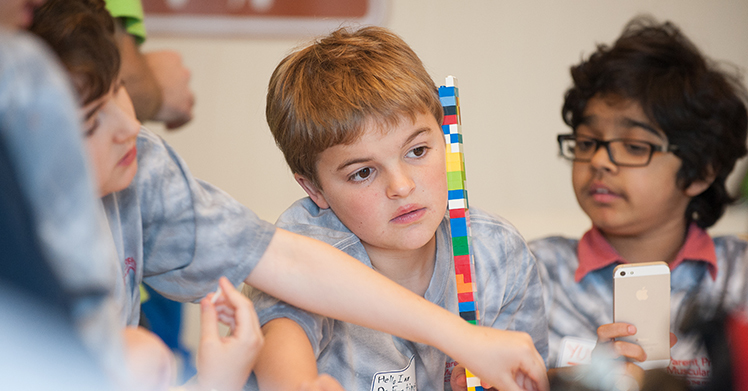
Robotics
Ensuring that the worlds of teens and adults with Duchenne ‘grow bigger’, as they grow older by expanding their reach – both literally and figuratively.
Combing your hair. Lifting a glass to your mouth. Washing your hands. Pressing elevator buttons. Zipping a coat. Opening a door. Turning on a light. Shaking a hand. Lifting an object. Increasing privacy in self-care. Giving a hug.
The loss of ability to perform these simple tasks that many people take for granted is one of the toughest aspects of Duchenne. The loss of independence.
Today, PPMD is proud to announce our funding support of a partnership between the New Jersey Institute of Technology (NJIT) and Talem Technologies, developers of the X-Ar Arm (read the press release). This is the coming together of extraordinary innovators, whose common denominator is a deep commitment to Duchenne.
Teams of biomedical engineers who have tested technology, worked with our community over the past several years and listened to your feedback, gone back into the lab to refined the technology, and are now initiating a new research study to evaluate the functionality of the refined robotic arms.
Convening Top Minds
Two years ago, PPMD launched our community’s robotics program – and the community responded with great enthusiasm and support. As a part of this effort, PPMD and UPPMD convened a meeting in London of the world’s top robotics experts who were developing technologies for Duchenne. The purpose of that meeting was to identify opportunities for collaboration, inform innovation, and bring together the global community.
RIGHT PHOTO: From left to right, Garrett Brown, creator of the SteadyCam (technology used as bases for robotic effort that the X-Ar Arm was based upon), Blake Mathie (X-Ar Arm innovator), Richard Foulds, PHD (head of Robotics program at NJIT), Pat Furlong (PPMD), Madelleine Corrigan, MS PhD candidate (Duchenne robotics engineer), Annie Kennedy (PPMD)
We also had the opportunity to share the survey data developed by PPMD and PPMD’s Adult Advisory Committee (PAAC), and collected from our community around patient preferences and most meaningful activities of daily living. Two of the attendees at that meeting were Blake Mathie of Talem Technologies and Madeline Corrigan of NJIT. Their meeting – and subsequent discussions – led to what has become an incredibly fruitful collaboration.
Updating the X-Ar Arm
The upper-extremity exoskeleton developed by Talem Technologies will be further refined in collaboration with biomedical engineers at NJIT to accept modular robotic assistance technology developed by NJIT. This would be the first of its kind to provide intuitive robotic guidance controls and motorized assistance to people with Duchenne, allowing them to continue to use their arms as their muscles weaken.
 LEFT PHOTO: Zach Smith tests the exoskeleton
LEFT PHOTO: Zach Smith tests the exoskeleton
NJIT’s technology uses what is known as admittance control, a robotic control paradigm in which the motion of the robot is controlled by the magnitude and direction of the forced applied by the user’s arm. Compared to passive arm supports that require the user to have sufficient strength to move them, admittance controlled devices significantly minimize friction and inertia and provide more precise compensation against gravity, reducing the exertion necessary to move a limb, particularly vertically.
Participants in the study will receive a pair of wheelchair-mountable passive arm supports to be used regularly inside their homes, as well as in classrooms, workplaces and other community settings. After a few months, each participant will receive a modular upgrade to partially motorize their arm support.
A Family Affair
At the heart of the exoskeleton development are families with Duchenne. Zach Smith has been a key innovator on this technology, along with more than a dozen young men who have spent many hours providing counsel and guidance to the product developers and engineers. We are so grateful to these community experts who have provided insight and helped to make critical improvements to previous technologies.
Thank you to our amazing Duchenne community for supporting PPMD’s robotics initiative! Your belief in technological innovation is helping develop tools that could impact every single one in our community.
Participating in the Next Phase of this Project
If you are a non-ambulatory member of our community, please consider whether participation in this research effort might be right for you! Click here to learn how you can participate in the next phase of this trial.



 by: Parent Project Muscular Dystrophy
by: Parent Project Muscular Dystrophy


